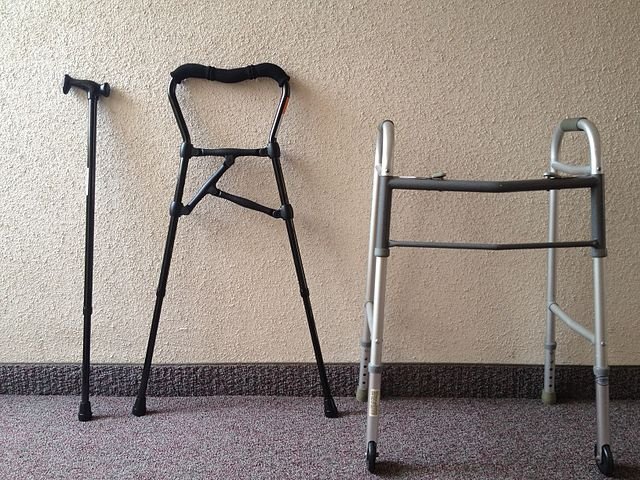Cases
All of our briefs are linked on their respective case pages. If they are helpful to you as an attorney or pro se litigator, please feel welcome to use them.

Brown v. Stapleton, et al
While incarcerated at Red Onion State Prison, Demmerick Brown went to the prison barbershop to get a shave and a haircut. Because of the pandemic, he was wearing a face mask, and the barber told him to remove it for the shave. Mr, Brown did. On this basis, a guard filed a disciplinary charge against Brown, Brown was convicted of a rule violation, and he was fined fifteen dollars.

Durham v. G. Kelley, et al
After a diagnosis with lumbar stenosis Mr. Durham has been limited in his ability to ambulate and was prescribed a cane to allow him to walk without extreme pain. Despite this diagnosis and prescription, officials in the Trenton facility ordered Mr. Durham to abandon his cane in his cell when he was transferred to a quarantine unit. They then continued to deny him access to his cane for approximately ten days. They did this despite numerous different requests from Mr. Durham for his cane to nurses, doctors, and correctional officers, and despite his reports of excruciating pain when he was forced to walk without his cane.

Snowden v. Henning
Seventh Circuit case on behalf of a man who had a DEA agent tackle and punch him in the face during a routine arrest, fracturing his eye socket

Hageman v. Billups
Mr. Hageman was quietly reading his bible in his cell when five correctional officers forcibly removed him from his bunk and took him to segregation, nominally not because he had done anything wrong but for his own protection. Although he was not resisting, they handcuffed him and pulled on the chain, breaking his wrist and cutting his hands.

Parker v. LeBlanc
Our client served 337 days in prison past his mandatory release date. We're proud to have argued the case in the Fifth Circuit, which ruled that this constitutional violation was clearly stablished, overcoming qualified immunity

Getzen v. Long
Rights Behind Bars and the Legal Defense Fund represented David Getzen in a qualified immunity case after Mr. Getzen was subjected to an unlawful use of force.

Moderwell v. Cuyahoga County, Ohio
Rights Behind Bars has won an appeal in the Sixth Circuit on behalf of Larry Johnson, a pretrial detainee at Cuyahoga County Correctional Center in Cleveland who committed suicide under the watch of corrections officers.

Seidner v. De Vries
Rights Behind Bars, together with the NAACP, represent a cyclist who was brutally rammed by a police car without warning or provocation, on the basis that his Fourth Amendment rights were violated.

Wheat v. Day
Rights Behind Bars represents Christopher Wheat, a pretrial detainee at Walton County Jail, on appeal for his § 1983 action against Deputy Day, a corrections officer who tasered him from behind as punishment for spilling water in his cell. Day moved for summary judgment following discovery on the basis of qualified immunity, and appealed when his motion was denied.

RBB wins rare Supreme Court qualified immunity reversal
In an extraordinary win for prisoner’s rights and all who oppose qualified immunity, the Supreme Court reversed the Fifth Circuit in Taylor v. Riojas, emphasizing that “no reasonable correctional officer could have concluded that, under the extreme circumstances of this case, it was constitutionally permissible to house Taylor in such deplorably unsanitary conditions for such an extended period of time.”

Shorter v. United States, et al.
Rights Behind Bars represents Chrissy Shorter, a transgender woman who was sexually assaulted while incarcerated at a federal prison in New Jersey. Shorter brought an 8th Amendment claim pro se against the prison for failing to take preventative actions to protect her from sexual assault even after her request for transfer to a safer institution had been approved.

Melnik v. Dzurenda
Rights Behind Bars, together with O’Melveny & Myers, represent John Melnik, an individual incarcerated at Nevada Desert State Prison who was denied the opportunity to present documentary evidence in his defense for a disciplinary charge. Because he was denied the opportunity to present this evidence, Melnik is currently facing three years in punitive solitary confinement.

Mammana v. Barben
Rights Behind Bars, along with Covington & Burling, represent a plaintiff on appeal who was forced to endure torture at the hands of prison staff in retaliation for requesting medical care.

Hamilton v. Westchester County
Rights Behind Bars is lead counsel representing a formerly pro se detainee who after a serious knee injury did not receive recreation, an accessible shower, a safe housing unit, or a railing to hold onto while being strip-searched.

Dickinson v. Cochran
Along with the law firm Wilkinson Walsh, Rights Behind Bars represents Joshua Dickinson who was jailed for three days in the midst of a mental health crisis.

Callahan v. Federal Bureau of Prisons
Rights Behind Bars represents Scott Callahan, a man in a federal prison in Ohio whose artwork was censored in violation of his First Amendment rights.

Vette v. Sanders
The NAACP Legal Defense and Educational Fund along with Rights Behind Bars represents Eric Vette, who alleges he was subject to excessive force by the police when even after being restrained by the police he was punched, hit with a dog chain, and bit by a police dog.

Porretti v. Dzurenda
Rights Behind Bars, along with Makris Legal Services, LLC, represents Wayne Porretti, an incarcerated man who was taken off the antipsychotic medications he needs to function for non-medical reasons.

Crane v. Utah D.O.C.
Rights Behind Bars represents the grandmother of Brock Tucker on her claims under the 8th Amendment, Utah Constitution, and the Americans with Disabilities Act. Brock entered the Utah Department of Corrections when he was seventeen years old.

McCoy v. Alamu
Rights Behind Bars, along with the MacArthur Justice Center, represents Prince McCoy, an incarcerated man in Texas who was sprayed in the face with mace by a prison guard for no reason other than the guard's frustration with a different person.
